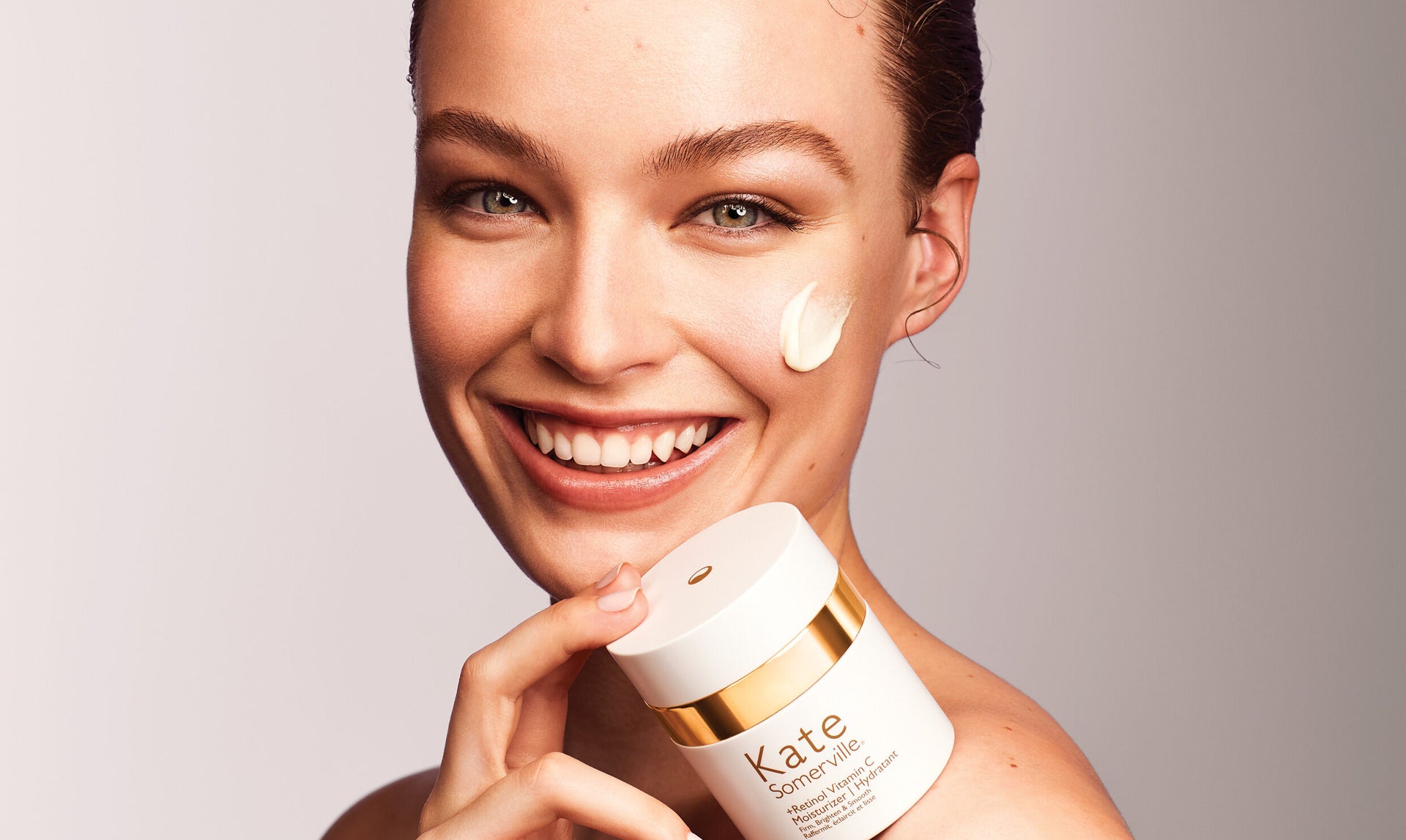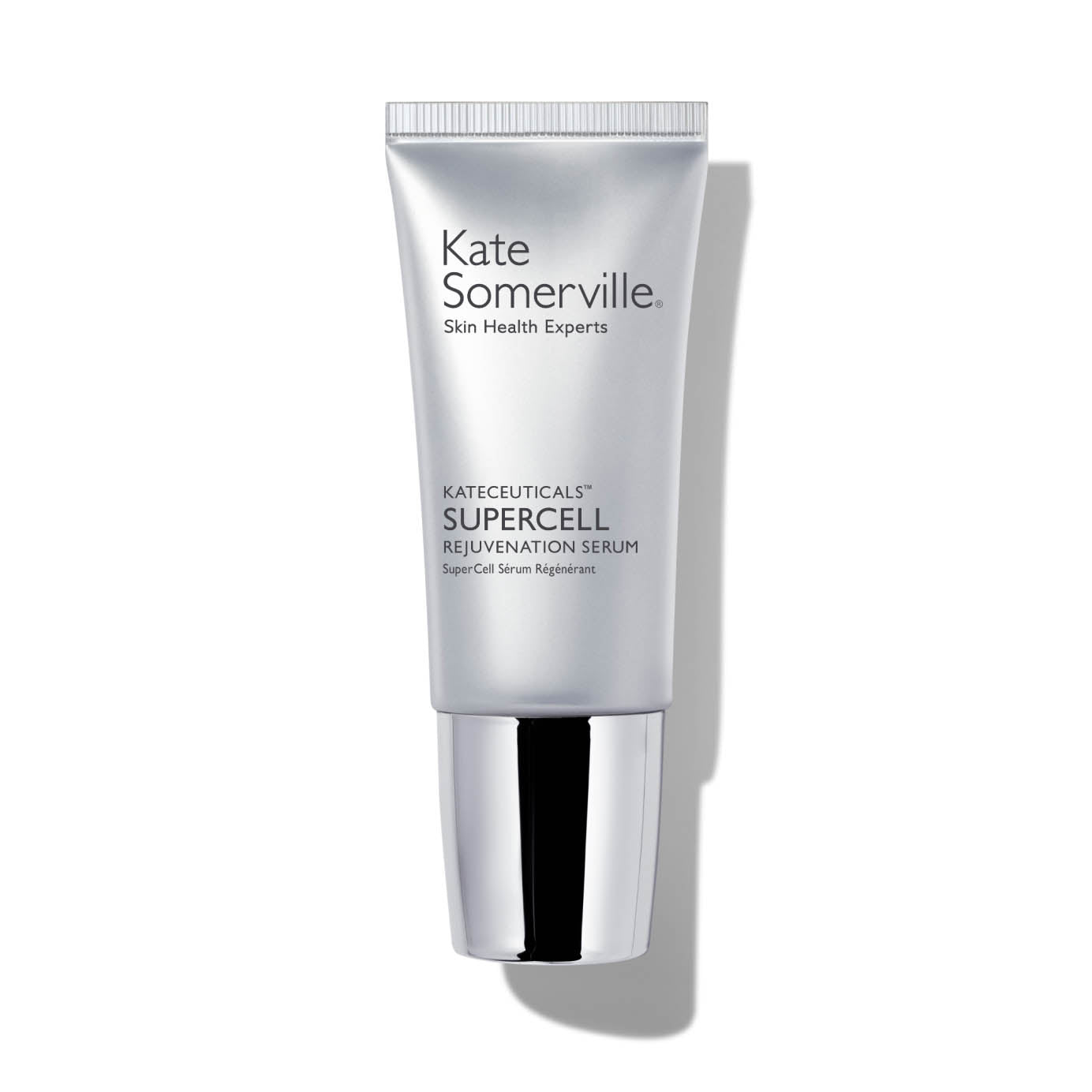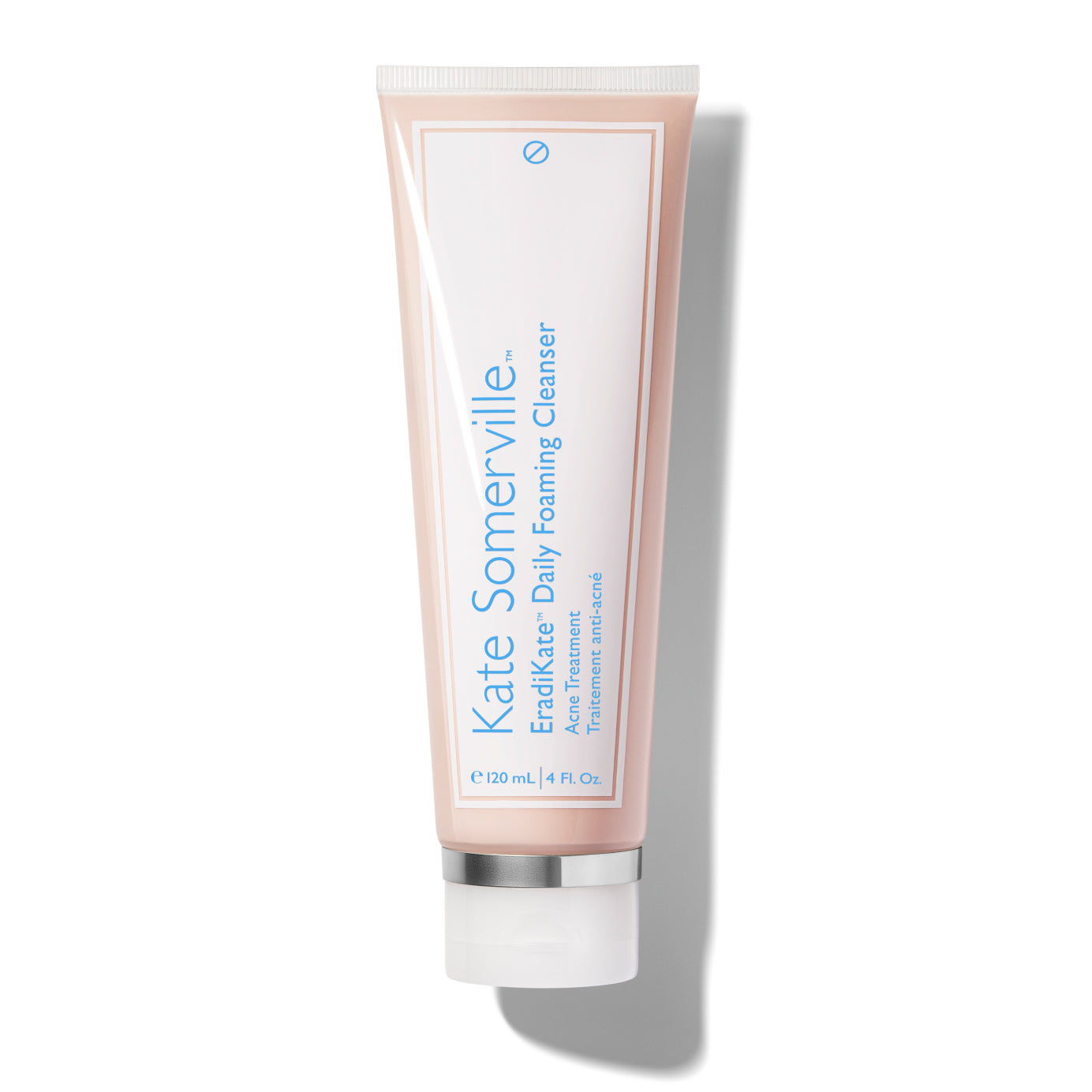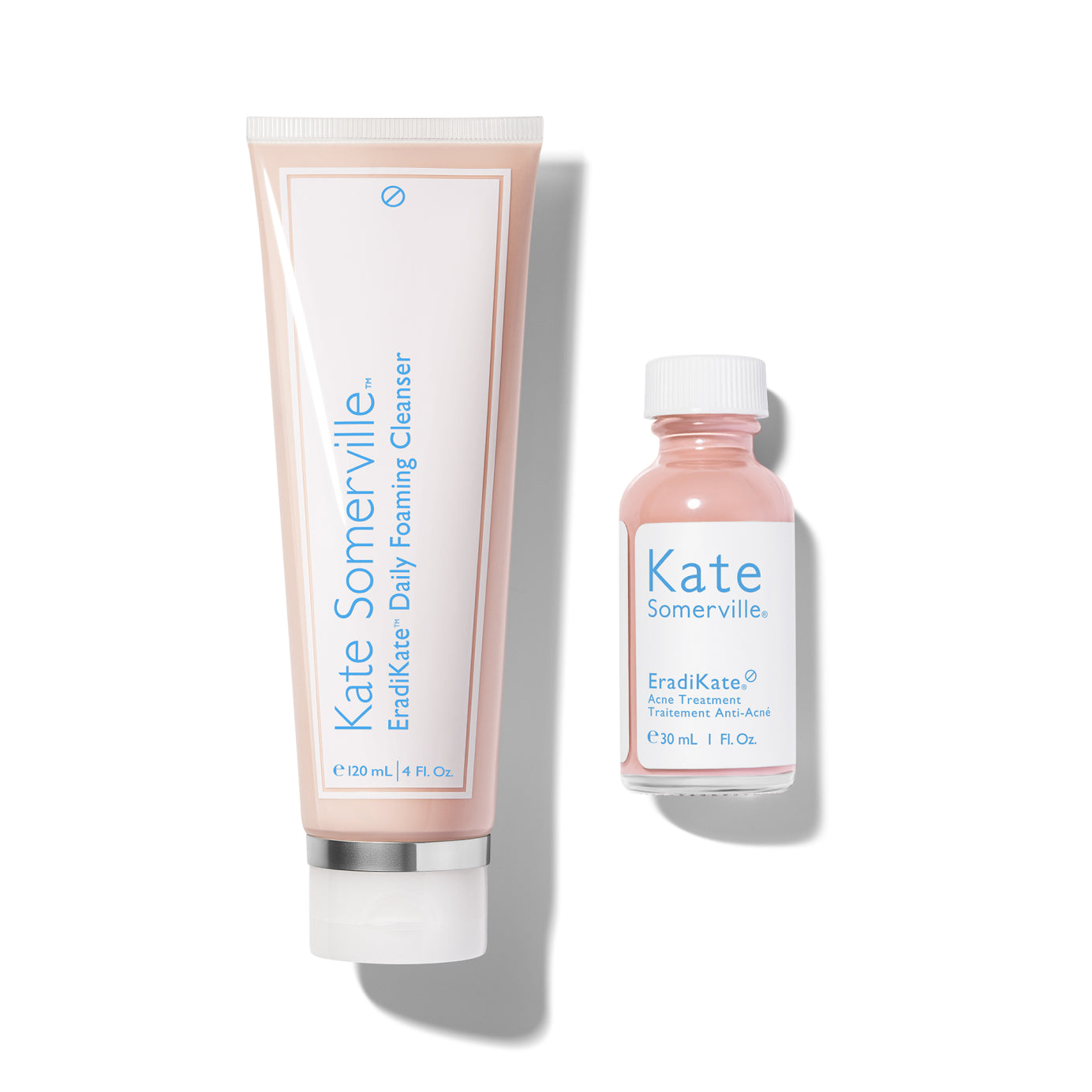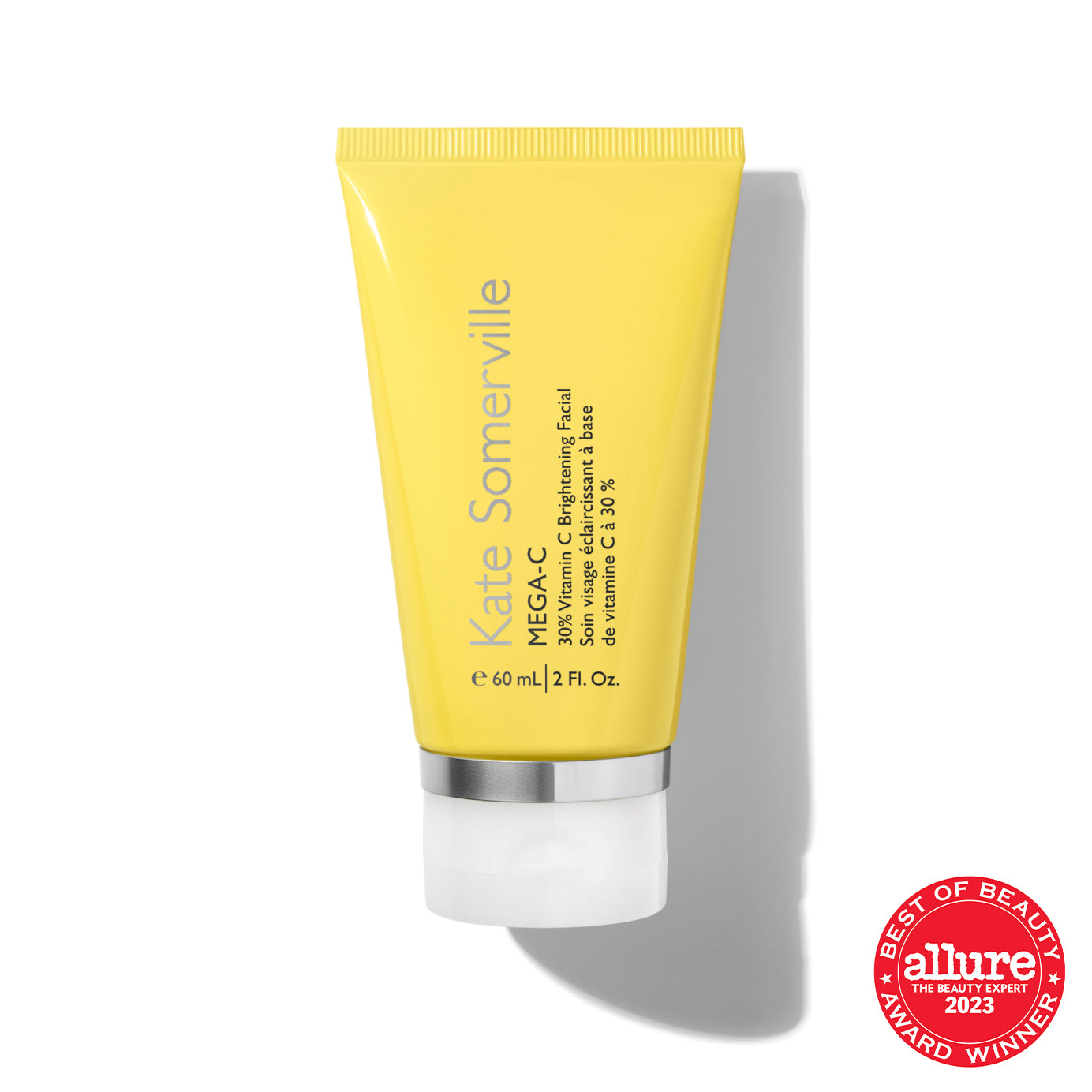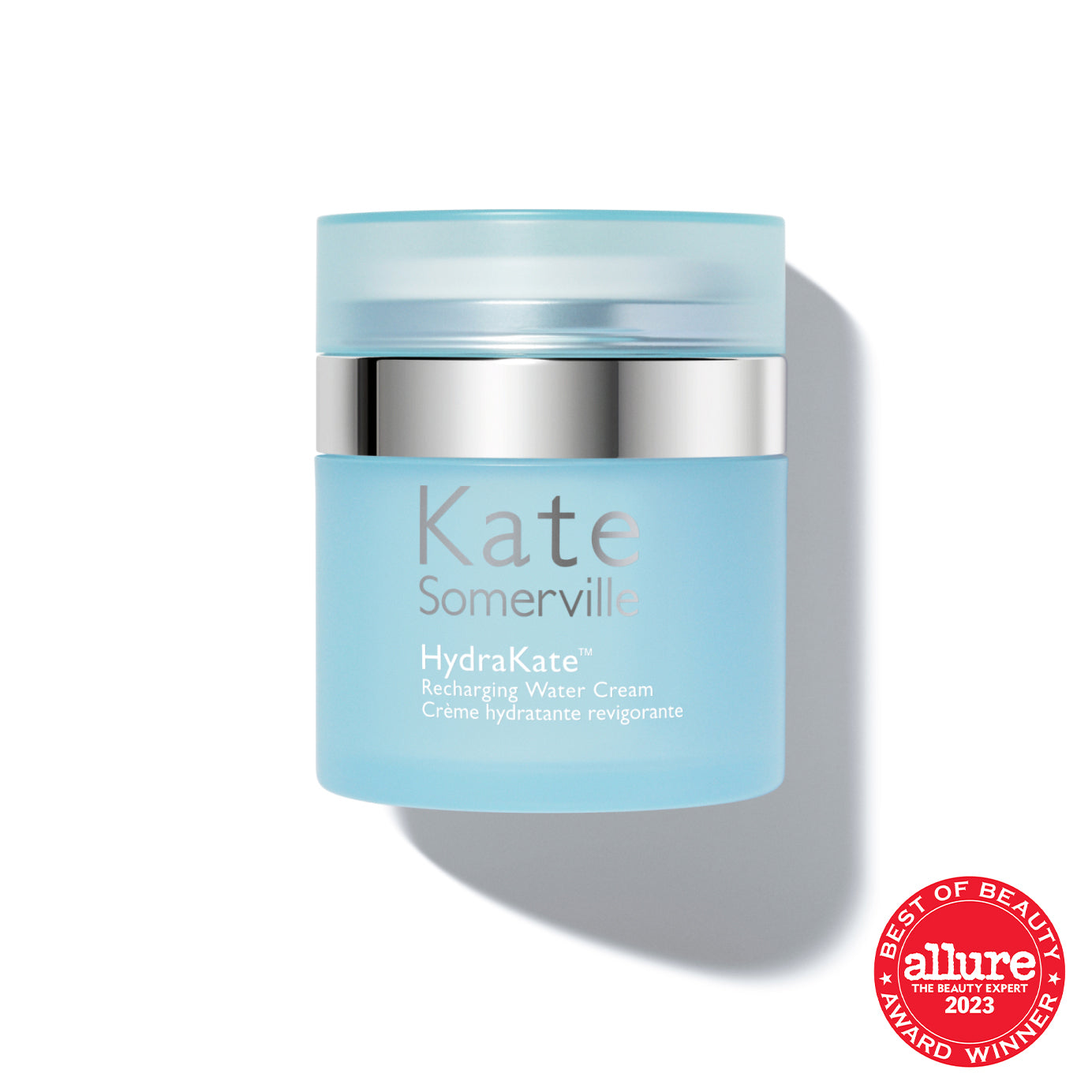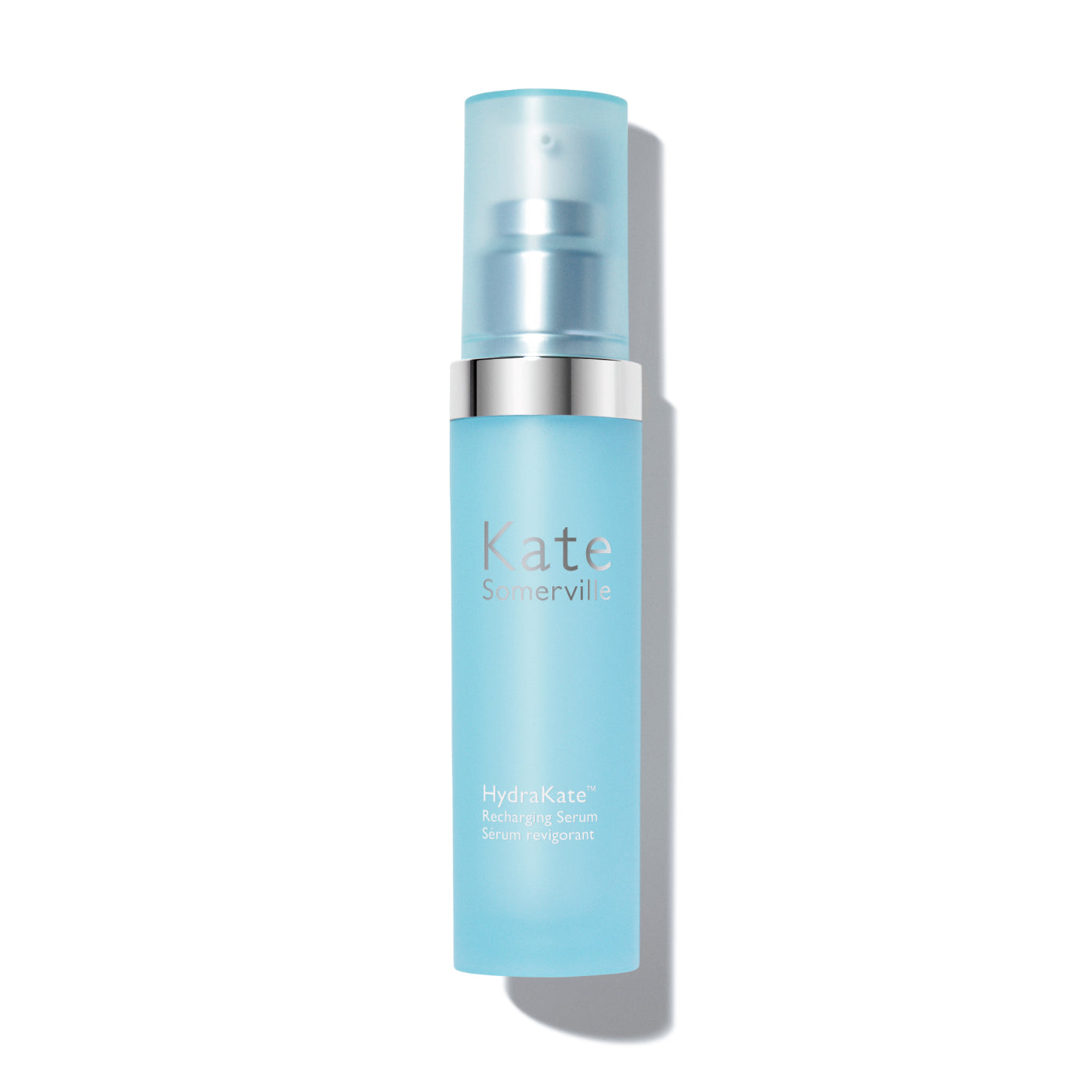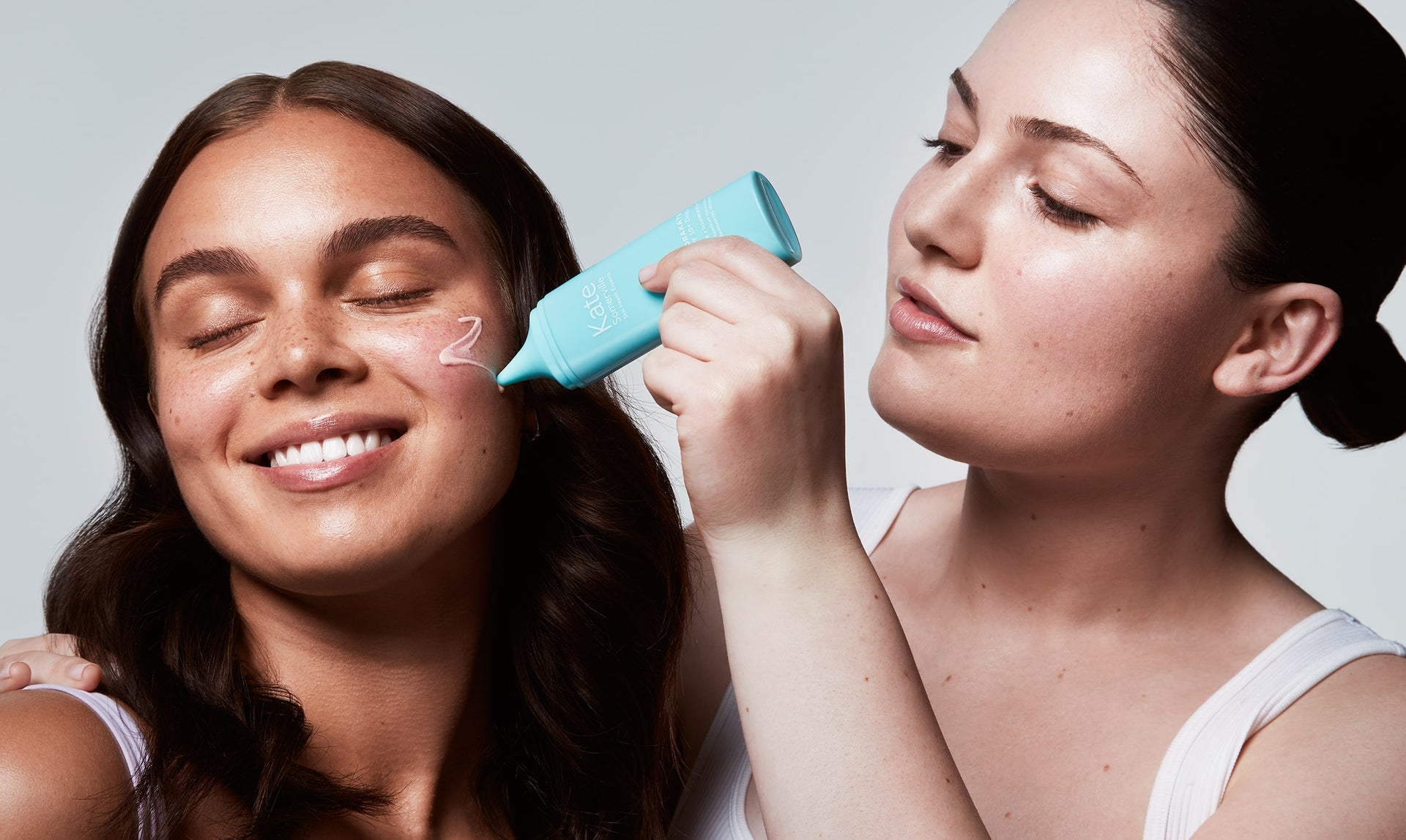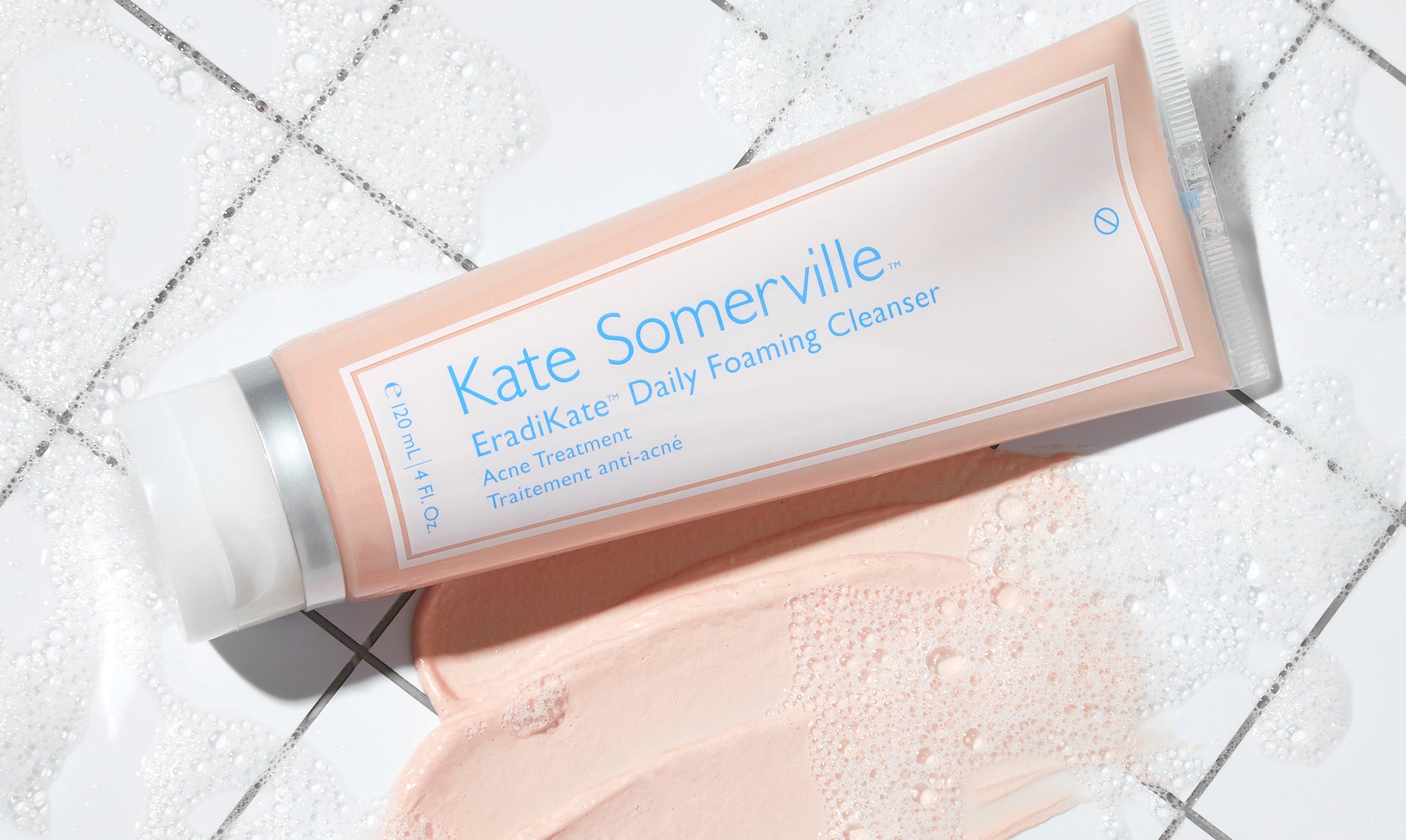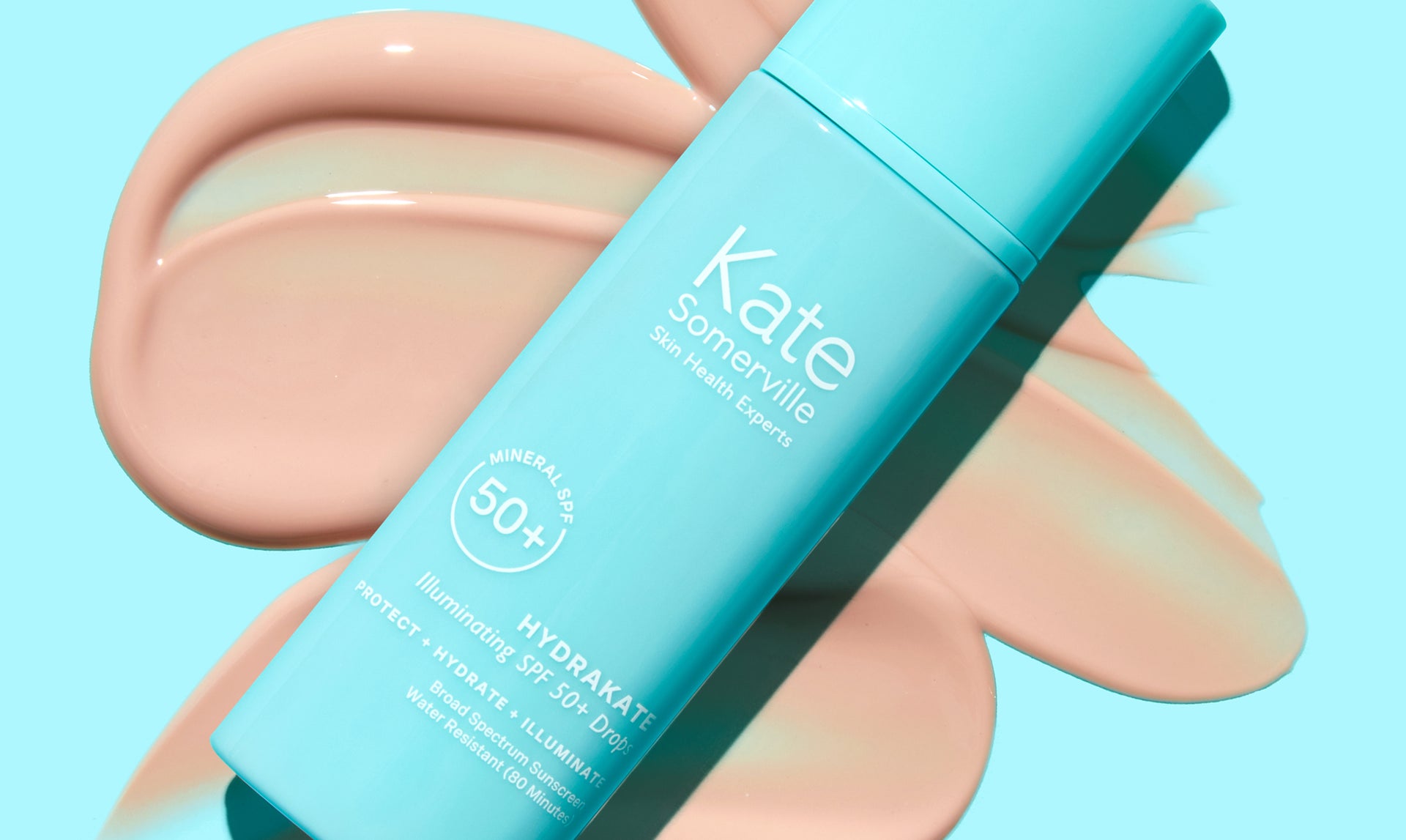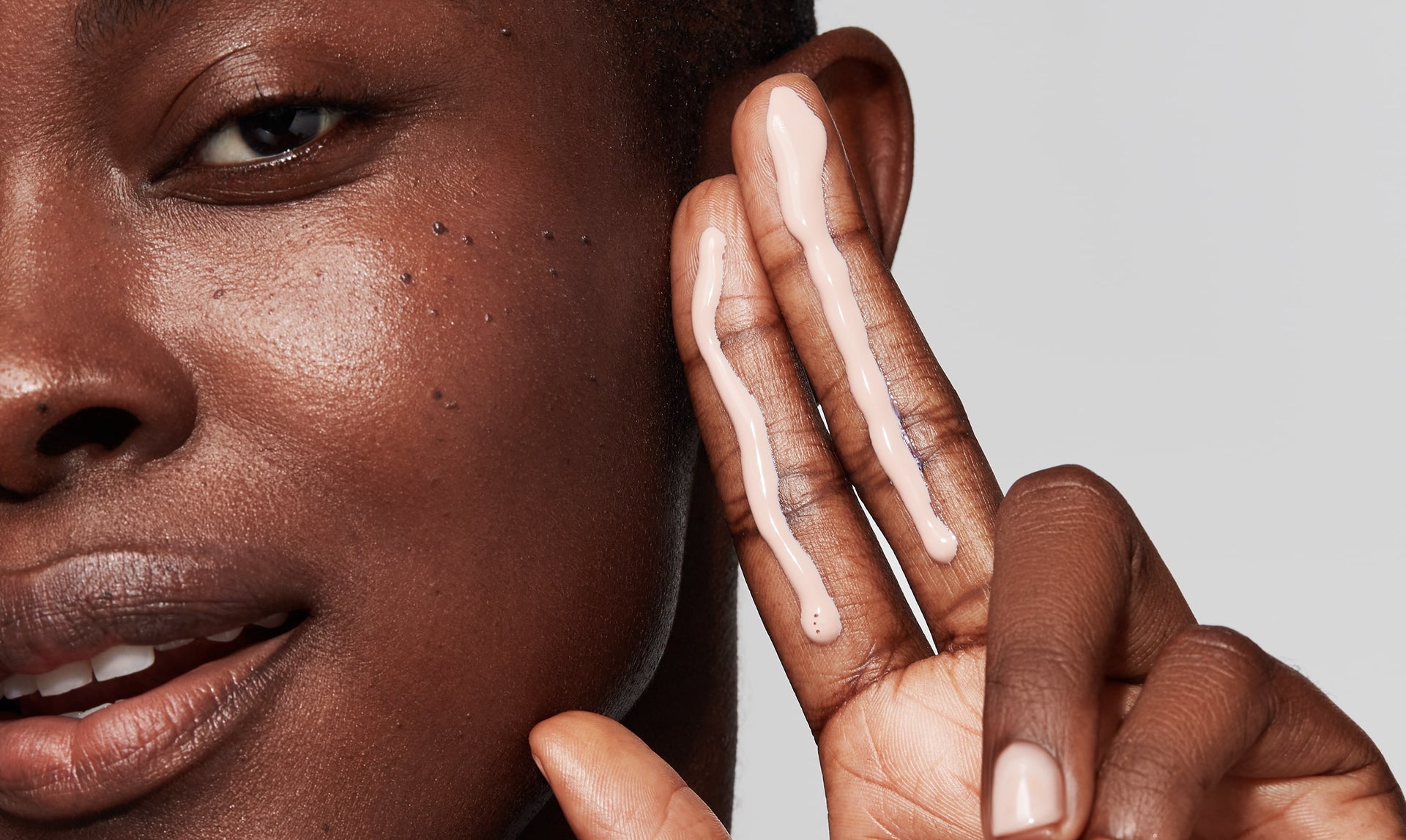Whether you’re new to skincare or a seasoned skincare enthusiast like us, it can still sometimes feel overwhelming to know the best ingredients for your skin’s unique needs. One thing we can all agree on, however, are the undisputed benefits of using vitamin C and retinol in your skincare routine.
Skin-brightening vitamin C and tone-evening retinol are two trusted skin care staples that pack beauty aisles and offer various benefits to your skin. But you may still be wondering… can you use vitamin C with retinol?
The answer is a resounding yes!
This brief guide by our Kate Somerville Skin Health Experts will outline each skincare product powerhouse and how you can use them in your skin care routine together for a myriad of skin-boosting benefits.
What Do Vitamin C and Retinol Do for Skin?
Both vitamin C and retinol provide invaluable benefits for your skin, helping your complexion look brighter and healthier.
Vitamin C Benefits
Your body needs vitamin C for many essential functions, such as cell production and immune system health. It’s a water-soluble vitamin and an active ingredient in many skin care products, which means you have to consume it regularly because your body cannot store it in excess amounts.
However, you can also apply vitamin C products topically to your skin.
For the maximum skin-boosting benefits to take effect, topical applications are best. Applying topical products helps concentrate the amount of vitamin C on your skin, which can directly help your skin by:[1]
- Lightening hyperpigmentation – If you have age spots or sun discoloration, vitamin C may help lighten their appearance through the suppression of melanin production. This can help your skinhave a visibly more even tone.
- Promoting collagen production – Vitamin C may also boost collagen production, which can help plump and firm the skin's appearance. This may also lessen the prominence of fine lines and wrinkles.
- Protecting against sun damage – Exposure to UV rays can cause photoaging and damage your skin. Luckily, vitamin C contains antioxidants that can help protect your skin from the sun’s harmful rays.
Retinol Benefits
While you’ve likely heard of retinol, you may not exactly know what it is. Retinol - like vitamin C - is a type of vitamin. In fact, it’s a fat-soluble derivative of vitamin A that can be used as a serum and skincare ingredient for sensitive skin or skin irritation. When used for skincare, retinol has been shown to offer the following benefits:[2]
- Improved skin tone and texture – Retinol works on your skin’s surface like an exfoliant. This can help slough away dead skin cells that dull the appearance of your skin, leaving behind smoother, brighter skin.
- Reduction of visible signs of aging – Retinol also encourages collagen production in your skin. More collagen leads to plumper, smoother skin and helps prevent some elasticity loss that occurs as you age. Thus, your skin may be less susceptible to wrinkles and fine lines.
- Clearer-looking skin – Retinol can help keep your pores clearer by encouraging new skin cell production. This helps remove dry skin and pore-clogging cells from oily skin, leading to skin that is less prone to breakouts and irritation.
Why Do Vitamin C and Retinol Work Well Together?
When you combine the powers of vitamin C and retinol, you get a potent anti-aging weapon for your skin.
While vitamin C works to diminish dark spots, improve skin tone, and protect skin from the sun, retinol boosts these impacts by stimulating collagen production and reducing the appearance of wrinkles.
Together, vitamin C and retinol give your skin a smoother, more even appearance.
How to Use Vitamin C and Retinol
Generally, it’s recommended to apply retinol at night and vitamin C in the morning. Start with 1 to 2 applications per week and see how your skin reacts. If you experience no irritation, increase your usage by a couple times a week.
And… You can also use these two ingredients at the same time. Just be sure to avoid applying retinol to your face if you plan to spend the day outside—retinoids are considered photo-unstable, meaning retinol may break down in the sun, making it less effective and potentially damaging your skin.
Risks of Pairing Vitamin C and Retinol
Like all good things, you can have too much vitamin C and retinol. Because they’re both powerful ingredients, following the less is more approach is important.
Start by using vitamin C- and retinol-packed serums or creams in small pea-sized amounts, then work up to larger applications slowly. This gives your skin time to adjust to your new skincare routine.Signs to watch out for that skin is being irritated by these two ingredients include:
- Skin peeling
- Visible irritation
- Redness
- Excessive dryness
- Breakouts
When using retinol as part of your routine, remember to apply sunscreen daily as retinol can make your skin more sensitive to the sun.
Find Your Skin’s Ideal Balance with Kate Somerville
Vitamin C and retinol can help you ditch dull-looking skin for a healthy and balanced appearance. Used in unison, this skincare duo may help improve your skin’s elasticity and reduce discoloration, fine lines, and wrinkles.
What’s not to love about glowy skin?
If you’re looking to boost your skincare routine with skin-nourishing ingredients, enlist the help of our Kate Somerville Skin Health Experts. We can help you find your ideal skin-pampering routine, which may include our +Retinol Vitamin C Moisturizer and +Retinol Vita C Power Serum, expertly formulated to help refresh and renew your skin. If you’re also wondering what is slugging[1] , we’ve got you covered!
Contact us today to schedule a consultation with one of our experts today.
Sources:
PubMed. Topical Vitamin C: A Useful Agent for Treating Photoaging and Other Dermatologic Conditions. https://pubmed.ncbi.nlm.nih.gov/16029672/
Aesthetic Surgery Journal. Cosmeceuticals: The Evidence Behind the Retinoids. https://academic.oup.com/asj/article/30/1/74/199813
American Academy of Dermatology. How to Maximize Results from Anti-Aging Skin Care Products. https://www.aad.org/public/everyday-care/skin-care-secrets/anti-aging/maximize-anti-aging-products
[1] PubMed. Topical Vitamin C: A Useful Agent for Treating Photoaging and Other Dermatologic Conditions. https://pubmed.ncbi.nlm.nih.gov/16029672/
[2] Aesthetic Surgery Journal. Cosmeceuticals: The Evidence Behind the Retinoids. https://academic.oup.com/asj/article/30/1/74/199813

